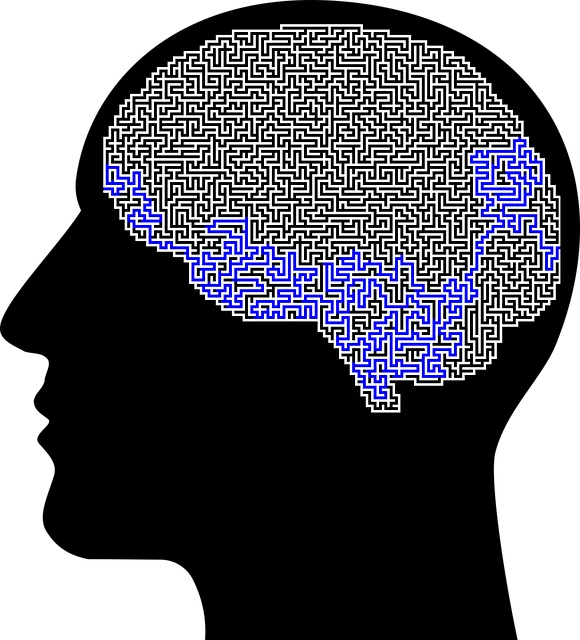Kaiser Permanente's Community Outreach Program in Lone Tree aims to improve mental health accessibility by addressing cultural and geographical barriers, fostering community resilience through initiatives like Mental Wellness Coaching and Trauma Support Services. The program collaborates with local entities, evaluates effectiveness, and employs tailored coping skills workshops to meet unique community needs, ensuring long-term success in promoting mental wellness among residents.
Community outreach programs play a pivotal role in enhancing mental health services, bridging the gap between healthcare providers and underserved populations. This article explores these initiatives, using Kaiser Permanente’s successful engagement efforts in Lone Tree as a case study. We delve into effective implementation strategies and the importance of measuring success to ensure these programs make a tangible impact on community well-being, particularly in accessing mental health services. Discover how organizations like Kaiser Permanente are revolutionizing care delivery.
- Understanding Community Outreach: Its Role and Impact in Mental Health Services
- Kaiser Permanente's Approach to Community Engagement in Lone Tree
- Effective Implementation Strategies for Successful Outreach Programs
- Measuring Success: Evaluating the Effectiveness of Mental Health Outreach Initiatives
Understanding Community Outreach: Its Role and Impact in Mental Health Services

Community outreach programs play a pivotal role in expanding access to mental health services, especially in areas where resources are limited. These initiatives, such as those offered by Kaiser Permanente in Lone Tree, aim to bridge the gap between healthcare providers and underserved communities. By implementing Mental Wellness Coaching Programs and Trauma Support Services, organizations like Kaiser Permanente can foster a sense of belonging and encourage individuals to seek help for their mental health needs.
Outreach programs not only increase awareness about available services but also promote positive thinking and resilience within the community. They provide a safe space for individuals to discuss challenges, learn coping mechanisms, and access specialized support, ultimately improving overall mental wellness. This strategy is particularly beneficial in addressing unique cultural or geographical barriers that might prevent people from reaching traditional healthcare settings.
Kaiser Permanente's Approach to Community Engagement in Lone Tree

Kaiser Permanente has implemented a robust Community Outreach Program in Lone Tree, focusing on enhancing mental health services and overall community well-being. Their approach emphasizes public awareness campaigns that educate residents about various aspects of mental health, breaking down stigma and promoting early intervention. Through these initiatives, Kaiser Permanente aims to empower the community with coping skills development programs tailored to meet local needs.
The organization actively collaborates with local schools, community centers, and support groups to develop and deliver targeted interventions. By fostering strong community partnerships, they ensure that their outreach efforts are inclusive, accessible, and culturally sensitive. This holistic strategy not only addresses immediate mental health concerns but also builds long-term resilience within the Lone Tree community. Additionally, Kaiser Permanente’s commitment to continuous evaluation ensures that their programs remain effective and relevant, ultimately contributing to a healthier and more supportive environment for all residents.
Effective Implementation Strategies for Successful Outreach Programs

Outreach programs aiming to enhance mental health services in communities like Lone Tree must be meticulously planned and executed. A successful strategy involves a combination of Empathy Building Strategies and Mental Illness Stigma Reduction Efforts. By fostering connections and understanding within the community, these initiatives can encourage individuals to seek help without fear of judgment.
Kaiser Permanente’s approach could include workshops and group sessions focused on Coping Skills Development, addressing common mental health challenges faced by Lone Tree residents. Engaging local leaders and organizations in these efforts ensures wider reach and acceptance. Tailoring programs to the unique needs and cultural context of the community is vital for effective implementation and long-term success.
Measuring Success: Evaluating the Effectiveness of Mental Health Outreach Initiatives

Evaluating the success of mental health outreach initiatives is paramount to understanding their impact and identifying areas for improvement. Organizations like Kaiser Permanente, known for offering mental health services in Lone Tree, utilize various metrics to gauge effectiveness. These measures often include tracking participation rates in programs, such as workshops or support groups, and assessing changes in public awareness campaigns development.
Beyond quantifiable data, qualitative feedback from community members plays a crucial role. Surveys, focus groups, and one-on-one interviews help uncover the emotional and psychological benefits participants experience. By combining these evaluation methods, Kaiser Permanente and similar organizations can ensure their Community Outreach Program Implementation efforts are not only reaching but also profoundly affecting individuals’ mental well-being, boosting confidence within the community.
Community outreach programs, like those implemented by Kaiser Permanente in Lone Tree, play a pivotal role in enhancing mental health services. By understanding their impact and employing effective strategies, initiatives can be tailored to meet the unique needs of diverse communities. Measuring success through evaluation ensures these programs remain relevant and impactful. In the case of Lone Tree, Kaiser Permanente’s approach underscores the potential for community engagement to revolutionize mental healthcare accessibility and outcomes.






